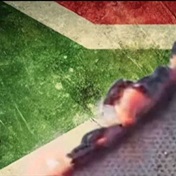Is it hooliganism masquerading as radicalism? That is the question that popped into my mind as this lowly newspaperman watched the revolts spread across South Africa. It reminded him of a story told by a vice-chancellor a while ago.
The students on this principal’s campus were boycotting classes and protesting about something or the other. Most of the demands were legitimate and the university was engaging with the student leadership about resolving the issues raised.
Then the students started trashing the campus. Sensing that the situation was deteriorating, the principal put a call through to the police and was connected to the public order unit. The public order policing man turned out to be a riot police veteran from the apartheid era, and was only too happy to dust off his old skills. In no time, the police were on campus, donnering the students.
When the student leaders barged into the principal’s office to complain about the police presence, he had a curt answer for them: “This is an academic institution, where we speak the language of thought. You are speaking the language of violence, which I don’t understand. That is why I called in people who understand that language, so you could engage with them directly. So just tell me when you are ready to speak a language we both understand, and I will tell those people to leave the campus.”
The thought of police entering academic institutions, as has happened in recent months, is anathema and should be avoided at all costs. But so is the use of violence by students. It has become routine now that at certain points of the year, students will destroy university property and disrupt classes to drive home their points.
This year, the protesters have developed a rougher edge, with them believing they are at the front line of a second revolution. Throughout the land, movements have been springing up and taking up issues specific to their campuses but buttered with broader political demands. The mantra has been that, 21 years down the line, the pre-1994 status remains, save for a change in the political establishment.
A narrative prevalent in student ranks is that the previous generation sold out and left the country’s racially skewed power relations intact. They believe it is their historic duty to pick up the baton and complete what their forebears did not finish. This they will do by all means necessary, even if it means torching university buildings and endangering the security of teachers and peers.
Ordinarily, we should be appreciating the intensification of militant campus activism. Student politics is one of the furnaces where future leaders are toughened. In any country, you will find that many of those who rise to high political office, corporate power or civil society leadership were once at the forefront of campus politics – whether it was fighting for better canteen food or more serious issues. We should be excited that students are not just loitering and listening to Nicki Minaj.
However, the growing anarchy has put a dampener on this excitement. The destruction of property and the violent intimidation of fellow students is totally unbecoming of people who have overcome obstacles to arrive at institutions of higher learning. Some of the language used by the students and their leaders when addressing university authorities is of the kind that belongs in seedy brothels (not that this newspaperman has ever been near one of those).
Then there is their logic and lines of argument, which make you wonder if you are listening to the nation’s future intellectual leadership or cargo ship sailors.
They totally refuse to accept the other side of the argument – that universities cannot manufacture the money that is needed to keep the lights on and the bookshelves stocked. They rattle on with incoherent rhetoric about making universities ungovernable and chasing management off campus unless their demands are met. In the process, the whole discussion and process of finding solutions has been turned into a dialogue of the deaf.
It may sound a little unfair to pile so much blame for the chaos on the youth. Government and the management of universities carry as much blame, as they have handled the issue of access without much foresight. While a great deal has been achieved in dealing with class and race as a barrier to tertiary education, those who matter are at sixes and sevens when it comes to backing this up with financial resources. Noble intentions and forward-thinking have inadvertently created a tinderbox. Those at the helm have not dealt fully with the cultural alienation that makes many youngsters feel like they are tolerated but not fully welcome on campuses.
And so we find ourselves with the fires raging on campuses. By its very nature, mass violence is infectious. That is how revolutions and mass uprisings throughout the ages have spread. Sometimes – and only sometimes – uprisings are good, as they may be the only way of achieving positive change. But one seriously doubts if much good can come of the mindless revolts on our campuses. The sooner they are doused, the better




 Publications
Publications
 Partners
Partners








